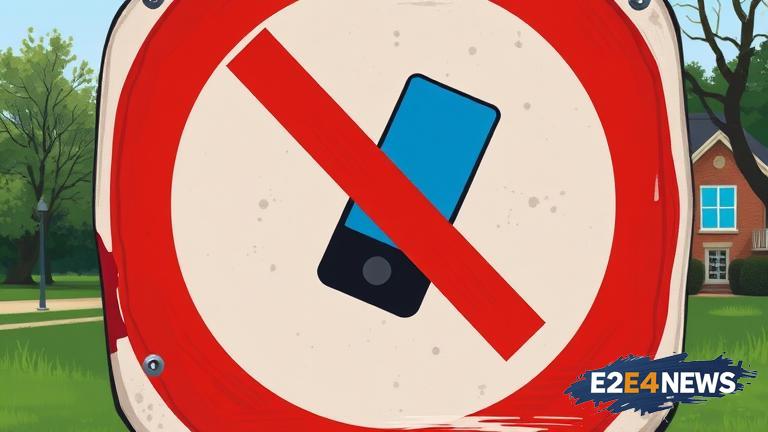In a bid to improve learning outcomes and reduce distractions, schools in Massachusetts have implemented a strict cellphone ban. The policy, which has been rolled out in several schools across the state, prohibits students from using their cellphones during school hours. This move is aimed at promoting a more focused and productive learning environment. By restricting cellphone use, schools hope to minimize distractions and encourage students to engage more actively in class. The ban also aims to reduce the risk of cyberbullying and other online safety concerns. According to school administrators, the policy has been well-received by students, parents, and teachers alike. Many believe that the ban will have a positive impact on academic performance and overall student well-being. The policy is not without its challenges, however, as some students have expressed concerns about the restrictions. Despite this, schools are committed to enforcing the ban and exploring alternative ways to stay connected with students during school hours. The Massachusetts Department of Elementary and Secondary Education has also expressed support for the policy, citing the importance of creating a safe and distraction-free learning environment. As the policy continues to be implemented, schools will be monitoring its effectiveness and making adjustments as needed. The ban is part of a broader effort to promote digital citizenship and responsible technology use among students. By teaching students about the importance of balancing technology use with other aspects of life, schools hope to equip them with essential skills for success in the digital age. The policy has also sparked a wider conversation about the role of technology in education and the need for schools to stay up-to-date with the latest trends and research. In addition to improving academic performance, the ban is also expected to have a positive impact on student mental health and social skills. By reducing the amount of time spent on screens, students will have more opportunities to engage in face-to-face interactions and develop essential social skills. The ban has also been praised by parents, who believe that it will help to reduce the risk of online safety concerns and promote healthier technology habits. As the policy continues to evolve, schools will be working closely with parents and the wider community to ensure that it is effective and sustainable. The Massachusetts cellphone ban is part of a growing trend towards stricter technology policies in schools. Similar policies have been implemented in other states and countries, with positive results. By taking a proactive approach to managing technology use, schools can help to create a safer, more productive, and more supportive learning environment. The policy is a significant step forward in promoting responsible technology use and improving academic outcomes. With its focus on minimizing distractions and promoting digital citizenship, the Massachusetts cellphone ban is an important initiative that has the potential to make a positive impact on students, schools, and the wider community.
